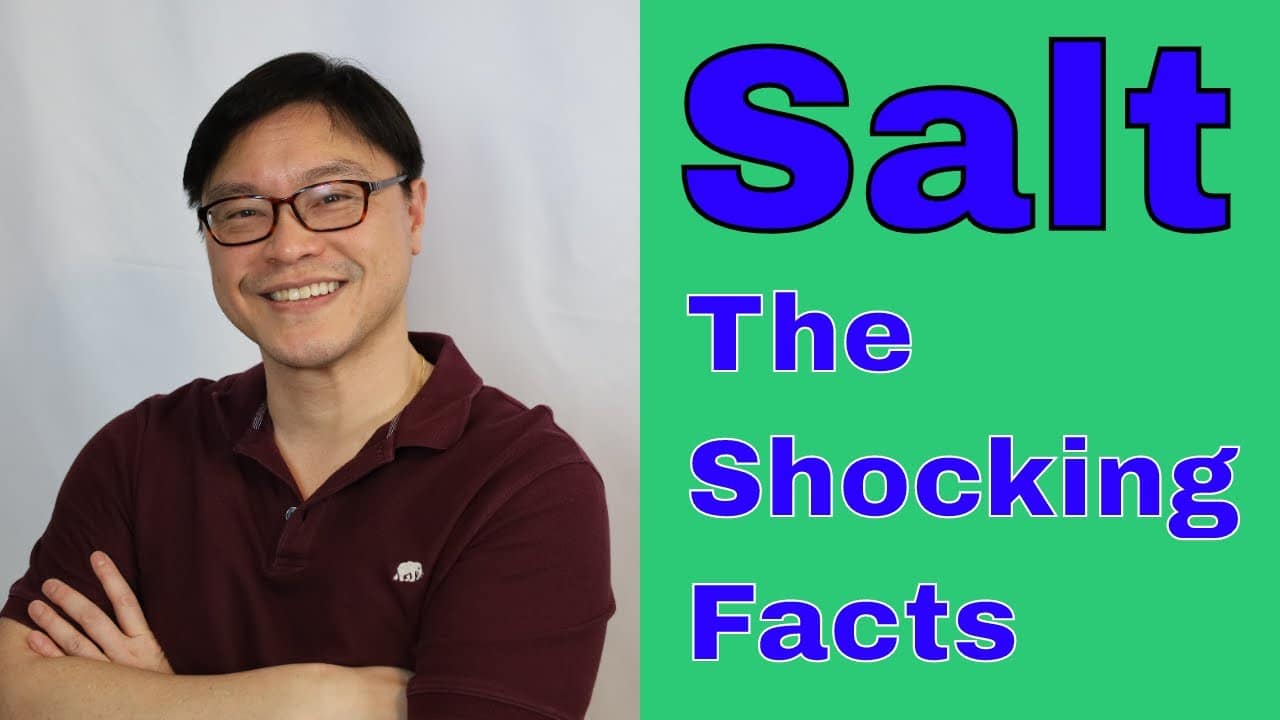*****
Summary of Transcript:
The transcript discusses whether a low-salt diet reduces the risk of heart disease. The Institute of Medicine in 2013 stated that a low salt diet was not helpful for most people and may even be harmful to those with heart disease. Certain hormones, such as renin and aldosterone, increase with a low salt diet, as do sympathetic tone, noradrenaline, adrenaline, cholesterol, triglycerides, and angiotensin. Insulin resistance also increases with a low-salt diet. While a low salt diet may lower blood pressure, it also raises other hormones that harm heart disease. Different data points and studies show that countries with higher salt consumption tend to have a lower risk of heart disease.
Prospective studies also show that a high salt diet may reduce the risk of heart disease. The goal is to reduce the risk of heart disease, not just lower blood pressure. Studies in the British Medical Journal and the American Medical Association found no reduced risk of heart attacks on a low-salt diet. The Cochrane Reviews in 2012 found a slight lowering of the risk of heart disease for those without heart disease or high blood pressure but no significant benefits. Similarly, studies in the US, such as the NHANES surveys, show that those on low-salt diets have a higher risk of overall death and heart disease deaths.
*****
Summary of Description:
Decades of clinical research have shown that a low salt diet may increase the risk of heart disease, according to Dr. Jason Fung, a medical doctor and author. He reviews the underlying physiology of weight loss and how low-carb diets and fasting can help in his book, “The Obesity Code,” and shares how type 2 diabetes is a reversible disease and dietary strategies in the book, “The Diabetes Code.” He also offers fasting teas, coaching, and medical lectures on his website and YouTube channel.
*****
Low-salt diets have long been touted as a healthy option for those looking to improve their heart health. However, decades of clinical research have resulted in a surprising revelation – such diets may increase heart disease risk. This revelation has left many people intrigued and confused, wondering if they have been unknowingly putting their health at risk.
The results of these clinical studies come as a shock, as salt has been deemed a contributor to a range of health issues, including hypertension and heart disease. The traditional advice has been to reduce sodium to maintain healthy levels. However, the surprising results suggest that this could be a misguided approach.
But how could a low-salt diet increase the risk of heart disease? The evidence suggests that cutting back on salt can increase the body’s renin production – a hormone that regulates blood pressure. This, in turn, can lead to a buildup of plaque in the arteries, which can trigger heart disease.
For those worried about salt’s role in their health, Dr. Jason Fung provides a range of insightful resources through his website and blog. This includes books such as The Obesity Code, The Diabetes Code, and The Cancer Code, which explores the underlying physiology of weight loss and dietary strategies for those with type 2 diabetes.
Dr. Fung recommends Pique Fasting Tea as a fasting aid and offers a fasting community and coaching service through The Fasting Method. He has also created a range of informative lectures, including “The Roots of the Obesity Epidemic” and “Reversing Type 2 Diabetes Naturally.”
Dr. Fung’s insights provide hope for those seeking guidance on improving their health, even as formal advice is being questioned. By breaking down complex scientific concepts into easy-to-understand terms, he is helping more people take control of their health and make informed diet decisions.
*****
Source Description
Does a low-salt diet healthy? The surprising result of decades of clinical research is that a low salt diet may increase the risk of heart disease when looking at hard outcomes. Check out my website at https://www.doctorjasonfung.com and blog at https://medium.com/@drjasonfung
More Information:
BOOKS:
The Obesity Code – Reviewing underlying physiology of weight loss and how low-carb diets and fasting can help. https://www.amazon.com/dp/1771641258?ref=exp_jasonfung_dp_vv_d
The Diabetes Code – Reviewing how type 2 diabetes is a reversible disease and dietary strategies. https://www.amazon.com/dp/B0795BLS8D?ref=exp_jasonfung_dp_vv_d
The Cancer Code – Scientific exploration of how cancer develops – https://www.amazon.com/dp/0062894005?ref=exp_jasonfung_dp_vv_d
Amazon:
USA – https://www.amazon.com/shop/jasonfung
Canada – https://www.amazon.ca/shop/jasonfung
**Fasting Aids**
Pique Fasting Tea (recommended)
https://www.piquetea.com/drjasonfung
Fasting Community and Coaching:
https://www.thefastingmethod.com/
YouTube Medical Lectures (for specialist physicians):
1. The Roots of the Obesity Epidemic – https://youtu.be/q8BGYhreaco
2. Therapeutic Fasting – The Two Compartment Problem: https://youtu.be/ETkwZIi3R7w
3. Does Calorie Counting work? https://youtu.be/5F5o0a4p_3U
4. Two Big Lies of Type 2 Diabetes – https://youtu.be/FcLoaVNQ3rc
5. Reversing Type 2 Diabetes Naturally – https://youtu.be/mAwgdX5VxGc
6. Insulin Toxicity – https://youtu.be/4oZ4UqtbB_g
7. Saturated Fat – Friend or Foe? https://youtu.be/QetsIU-3k7Y
8. Diet and Disease – https://youtu.be/2yoOx_7MLn0
9. Dangers of Fructose – https://youtu.be/pG89j432w-Y
10. Insulin Resistance – https://youtu.be/dimP7IdM2Og
11. Role of Hormones in Weight Loss – https://youtu.be/ZbnshVO4PRM
12. The Obesity Code Lecture 1 – https://youtu.be/YpllomiDMX0
#jasonfung #drjasonfung #drfung #fung #nutrition #diet #health #salt
Join this channel to get access to the perks:
https://www.youtube.com/channel/UCoyL4iGArWn5Hu0V_sAhK2w/join


Comments are closed